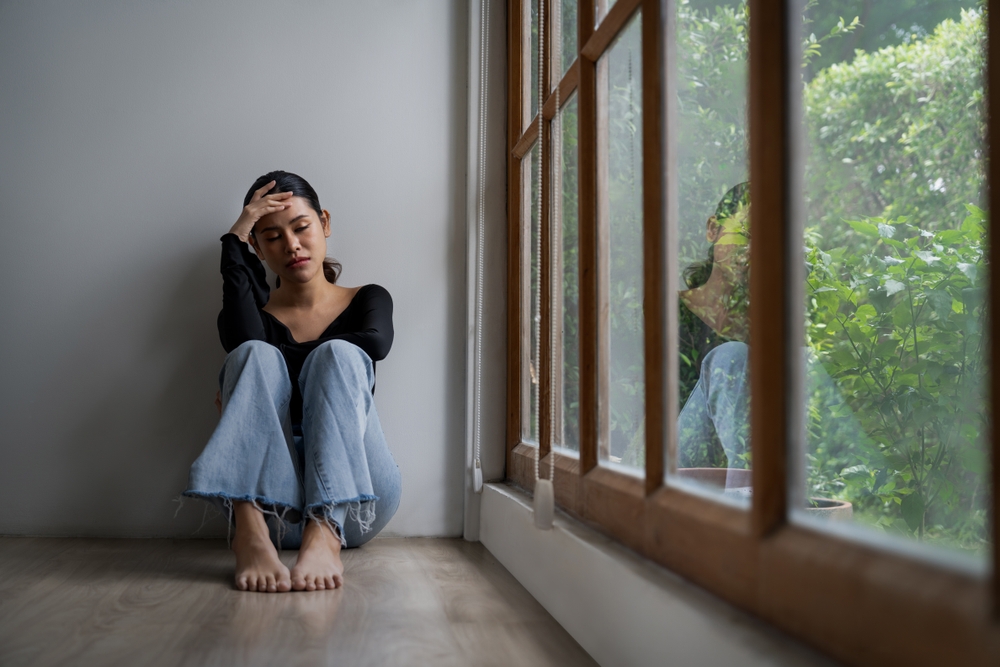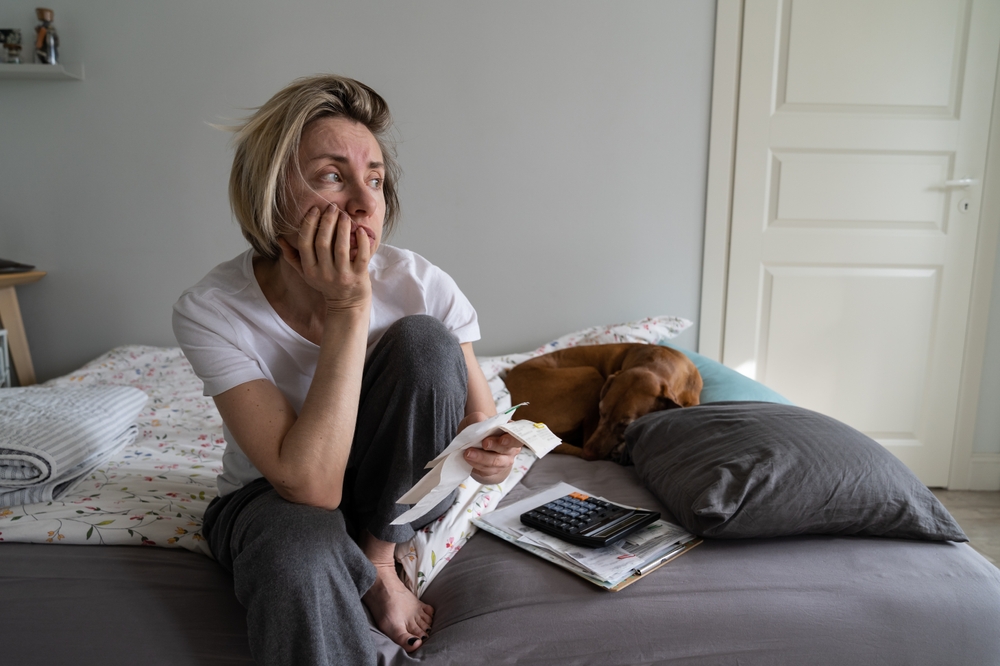We’ve all been there—sitting with a decision or a feeling, caught in a swirl of nervous energy. It’s tempting to label that unease as a deep, intuitive knowing. But anxiety often masquerades as intuition, leading us to act on fear instead of insight. So, how do you tell the difference? Let’s dive into the subtle ways these two forces show up in your life.
1. Anxiety Feels Heavy, Intuition Feels Light

Anxiety often feels heavy, like a cloud hanging over your head, making it hard to see past the fear. It creates a mental fog that distorts your perception, causing you to view situations as urgent or threatening even without concrete evidence. This overwhelming sense of dread can be mistaken for a gut feeling, but it lacks the clarity and calm that true intuition provides.
In contrast, intuition feels light and effortless, guiding you with a quiet confidence rather than panic. Research from the Association for Psychological Science shows that anxiety can interfere with our ability to trust intuitive insights, as anxiety heightens threat perception and clouds judgment. When you experience intuition, it feels freeing and clear, even amid uncertainty.
2. Anxiety Speaks In ‘What Ifs,’ Intuition Speaks In Certainty

The voice of anxiety is a relentless loop of “What if?” scenarios—what if I fail, what if I make a mistake, what if they don’t like me? This kind of internal dialogue keeps you stuck in potential futures that haven’t even happened. The focus is on all the negative possibilities, clouding your judgment and feeding into your fears. It’s a cycle that traps you in indecision.
Intuition, on the other hand, doesn’t question or waver. It simply presents what feels right, without a sense of “what if.” There’s a quiet assurance, a knowing that transcends doubt. Trusting intuition means you don’t second-guess your choices, even if they don’t fit neatly into the logical framework your anxiety craves.
3. Anxiety Pulls You Into The Past, Intuition Pulls You Into The Present

Anxiety often brings past experiences to the forefront- mistakes you’ve made, people who’ve let you down, or situations where things didn’t go as planned. It’s as if your mind replays these moments, convincing you that history will repeat itself. This mental loop makes it difficult to stay grounded in the present, always fearing that something will go wrong again. Anxiety is rooted in the past, even when the current moment offers no reason for concern. According to the National Center for Biotechnology Information, anxiety involves complex cognitive and emotional responses often linked to past experiences that shape future-oriented fear and worry.
Intuition, however, is rooted in the now. It’s about sensing the current situation with clarity and responding to it from a place of self-awareness. Unlike anxiety, which focuses on past failures, intuition is about understanding the present moment and making decisions based on what feels right right now. This shift from fear to a grounded, intuitive knowing helps guide you forward with confidence and calm.
4. Anxiety Leads To Overthinking, Intuition Inspires Action

When anxiety takes the wheel, it often spins you into a spiral of overthinking. You replay every possible outcome, trying to predict the future, and often end up paralyzed by your thoughts. This over-analysis prevents you from acting, leaving you stuck in a mental maze of what to do next. The longer you engage with anxiety, the harder it becomes to make any decision at all.
Intuition, on the other hand, tends to bring immediate clarity and action. It bypasses the overthinking and jumps straight to the heart of the matter. When you trust your intuition, you don’t waste time second-guessing. You make decisions quickly because you know, without a doubt, that they’re right for you. Experts from ImPossible Psychological Services explain that overthinking is often driven by anxiety and doubt, while intuition offers calm clarity and prompts decisive action.
5. Anxiety Feels Disconnected, Intuition Feels Aligned

Anxiety often comes with a sense of disconnection, like you’re not fully in touch with your feelings or desires. It’s a frantic energy that distances you from your true self, often leaving you feeling overwhelmed and out of control. This disconnect can make it hard to know what you truly want, leading you to act based on fear rather than your inner truth. When anxiety is present, you feel out of sync with your own body and mind.
In contrast, intuition brings a sense of alignment. You feel connected to your desires, values, and beliefs, guiding your actions in a way that feels harmonious. There’s no confusion or turmoil, just a deep sense of being aligned with your purpose. Trusting your intuition feels like coming home to yourself, while anxiety keeps you from fully embracing who you are. As noted by the National Institutes of Health, anxiety tends to narrow focus and inhibit intuitive processing, whereas positive emotional states enhance intuition and flexible thinking.
6. Anxiety Switches Up, Intuition Is Steady

One minute, anxiety tells you to take action, and the next, it tells you to freeze. This shifting nature of anxiety can leave you feeling like you’re being pulled in different directions. It thrives on uncertainty and thrives in a cycle of contradictions. Anxiety’s unpredictability can make it hard to know what to do because it never lets you find a stable ground.
Intuition is different—it’s constant and unchanging. It doesn’t flip-flop or bombard you with competing messages. You’ll notice it as a steady feeling that doesn’t change depending on your mood or situation. When you listen to your intuition, it feels like you’re guided by an inner compass that always knows where you need to go.
7. Anxiety Feels Urgent, Intuition Is A Slow Roll

When anxiety takes over, everything feels urgent. You feel like you have to make decisions now, or something bad will happen. It convinces you that time is running out and that you must act quickly, even when no real pressure exists. This urgency can cloud your judgment, pushing you to make hasty decisions that you may later regret.
Intuition, on the other hand, doesn’t come with that sense of panic. It allows you to take a moment, breathe, and make decisions at your own pace. There’s no rush with intuition; it lets you move with clarity and calmness. When you follow your intuition, you don’t feel the weight of time; you feel empowered to make decisions when they’re right. Research published in Frontiers in Psychiatry highlights that anxiety impairs both rational and intuitive decision-making, often leading to rushed choices, whereas calmness supports clearer, more deliberate decisions.
8. Anxiety Is Based On Fear, Intuition Is Based On Wisdom

Anxiety is rooted in fear—fear of failure, fear of making the wrong decision, fear of what others think. It holds you back from taking chances because you’re afraid of the unknown. Every thought fueled by anxiety is a response to something you fear might happen, rather than something grounded in truth. The more you listen to this fear, the further you stray from your wisdom.
Intuition, however, is built on wisdom. It’s about understanding that even in uncertainty, you are capable and knowledgeable enough to navigate what lies ahead. Intuition doesn’t fear the unknown; it embraces it with confidence. When you follow your intuition, you trust the wisdom that comes from within rather than fear-driven impulses.
9. Anxiety Is Distracting, Intuition Is Focusing

Anxiety is often loud, like a constant ringing in your ears. It pulls your attention in many directions, making it hard to focus on one thing. You may find yourself unable to concentrate on the task at hand because anxiety is pulling your mind elsewhere. It creates mental clutter, making it difficult to think clearly or stay grounded in your current reality.
Intuition, however, has a focusing effect. It clears the mental noise and directs your energy toward what truly matters. When you tap into your intuition, everything else fades into the background, leaving you with clarity and focus. Intuition helps you hone in on your goals, simplifying decisions without the distraction of external noise.
10. Anxiety Erodes Confidence, Intuition Reinforces It

Anxiety has a way of chipping away at your self-esteem. It whispers doubts, telling you that you’re not capable or that you’ll fail. You might find yourself questioning your worth or your abilities because anxiety is always focused on what could go wrong. This undermines your confidence and leaves you feeling less sure of yourself.
Intuition, on the other hand, strengthens your confidence. When you trust your gut, you feel a deep sense of self-assurance, even in the face of uncertainty. Intuition doesn’t make you doubt your choices; it affirms them. It’s a sense of trust in your abilities and decisions that builds with every choice you make.
11. Anxiety Drains You, Intuition Energizes You

The constant buzz of anxiety leaves you feeling exhausted. It takes a mental toll, as you wrestle with endless what-ifs and hypothetical situations. The energy spent worrying and overthinking can make you feel drained, even after making seemingly small decisions. This emotional fatigue is a clear sign that anxiety has taken the reins.
Intuition feels different—it’s revitalizing. When you trust your gut, you often feel more energized and at peace. Intuition gives you clarity, and this mental release brings an immediate sense of relief. It clears the mental clutter and leaves you feeling empowered, ready to face the next challenge.
12. Anxiety Keeps You Stuck, Intuition Opens You To The Future

When anxiety is in control, you find yourself stuck in past experiences. You replay old failures and fears, worrying that the same thing will happen again. This focus on past events prevents you from moving forward and leaves you stuck in a loop of regret and worry. Anxiety keeps you in a place of stagnation, always looking backward instead of forward.
Intuition, however, opens the door to the future. It helps you envision possibilities and feel excited about what’s to come. When you trust your intuition, you embrace the unknown with curiosity and optimism. It encourages you to step into the future with confidence, knowing that you are prepared for whatever lies ahead.
Natasha is a seasoned lifestyle journalist and editor based in New York City. Originally from Sydney, during a stellar two-decade career, she has reported on the latest lifestyle news and trends for major media brands including Elle and Grazia.


